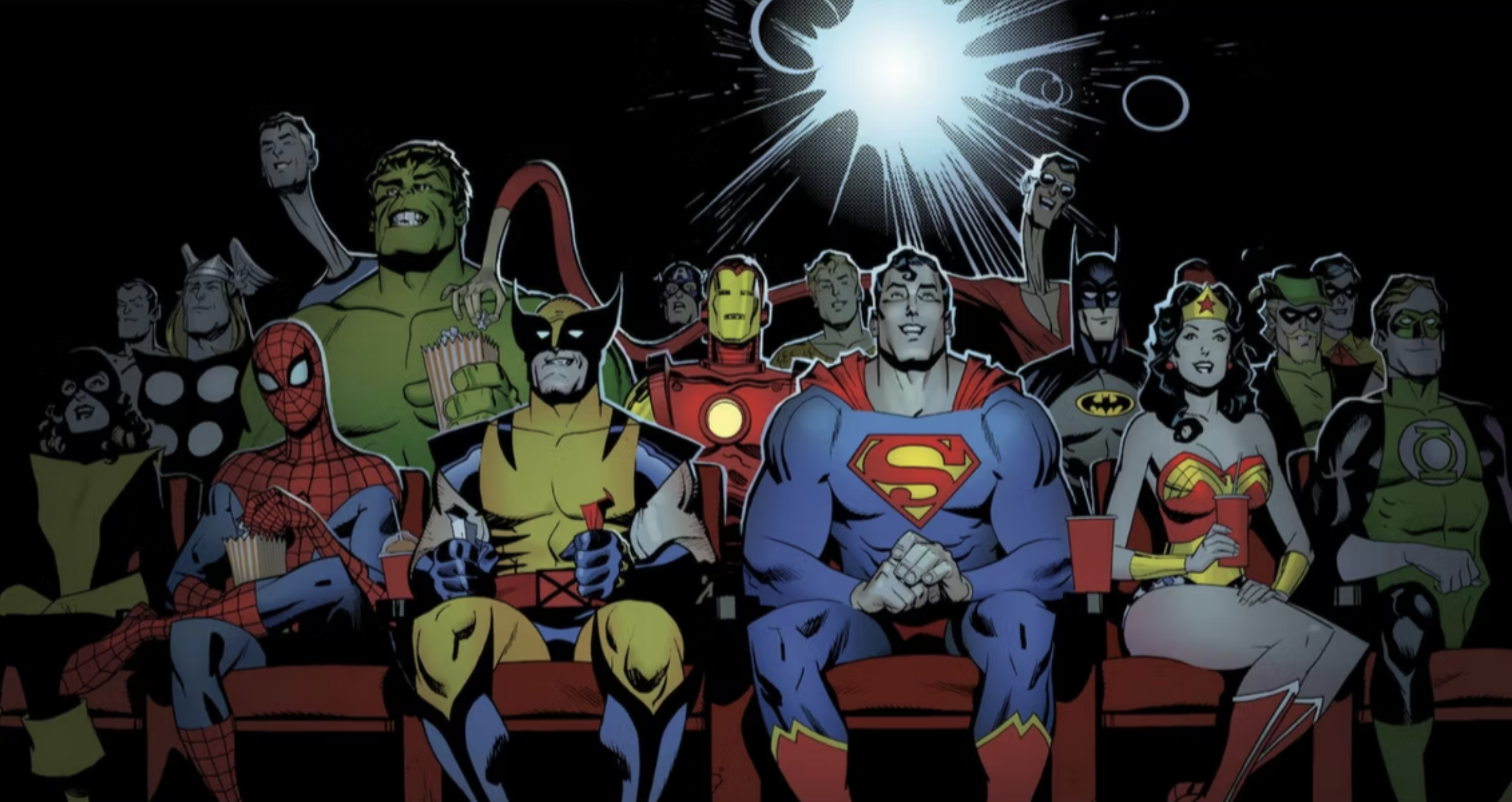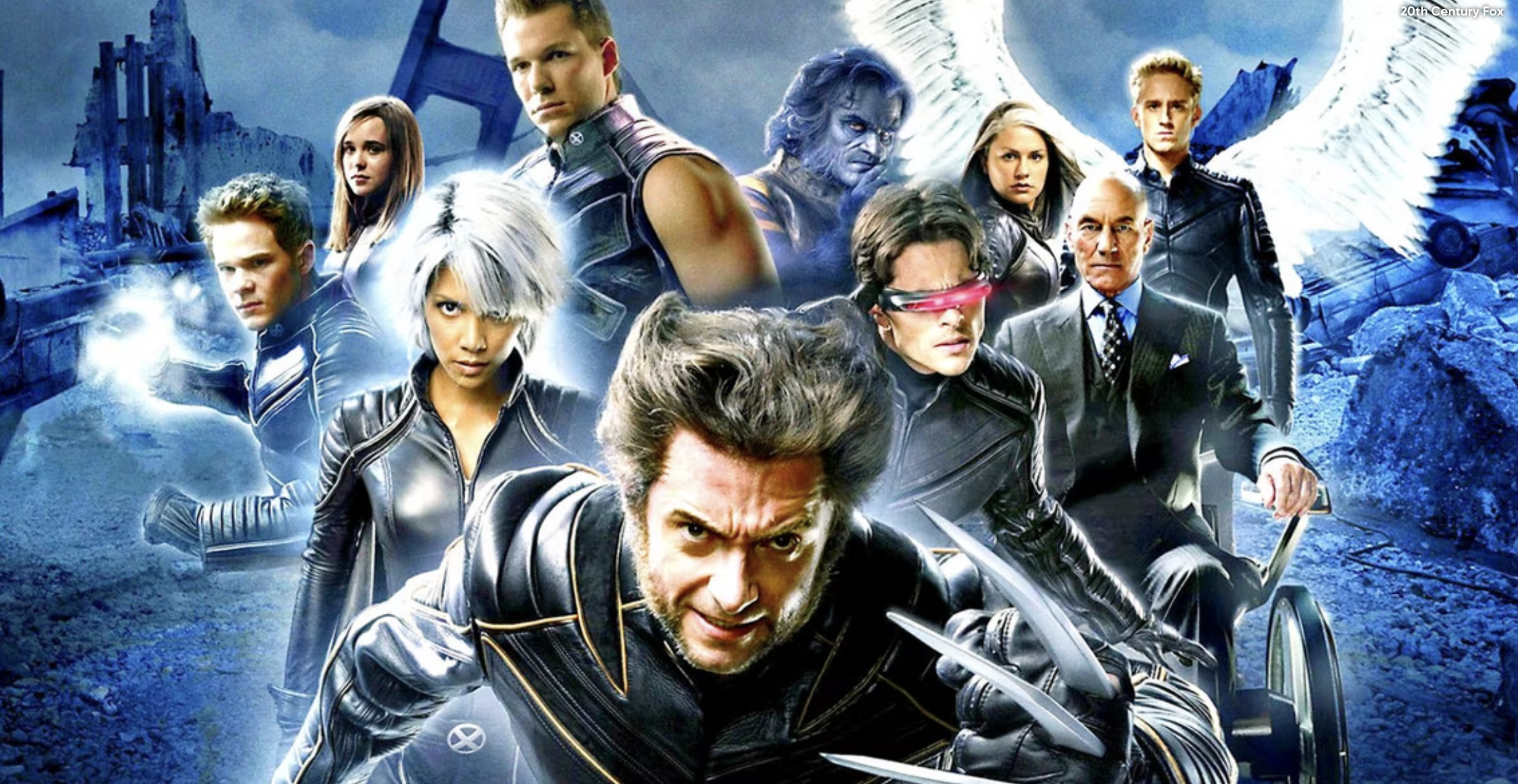From Page to Screen: The Cinematic Odyssey of Comic Book Adaptations
Bounding Into Comics
The relationship between comic books and the film industry has been a fruitful one, giving rise to some of the most iconic and beloved movies in contemporary pop culture. Over the years, comic book characters and narratives have made the leap from the pages to the cinematic frames, and audiences around the world have witnessed the evolution of these stories in ways that captivate and resonate. In this article, we'll delve deeper into the fascinating journey of comic book adaptations, exploring the impact of these transitions from page to screen and examining how filmmakers have brought these beloved characters and stories to life in new and exciting ways. We'll also take a closer look at how comic book adaptations have influenced the film industry as a whole, shaping how filmmakers approach storytelling and creating a new era of blockbuster entertainment.
Marvel Entertainment Group
The Rise of the Superhero Blockbuster
The early 2000s witnessed a remarkable surge in the popularity of superhero movies, with legendary characters like Spider-Man, X-Men, and the Marvel Cinematic Universe (MCU) gaining immense popularity amongst the masses. The release of Sam Raimi's "Spider-Man" in 2002 proved to be a pivotal moment in the history of comic book adaptations, showcasing the potential for such movies to become colossal box office hits and heralding a new era of superhero cinema. The film's success paved the way for numerous sequels, spin-offs, and cinematic universes, firmly establishing superheroes as an integral part of mainstream entertainment.
Warner Bros. Pictures
The Nolan Effect
Christopher Nolan's "The Dark Knight Trilogy" spanning from 2005 to 2012, is widely acclaimed for its contribution to the superhero genre and the cinematic medium as a whole. The trilogy's success can be attributed to its exceptional portrayal of gritty realism, complex characters, and profound philosophical themes. The second instalment of the trilogy, "The Dark Knight", released in 2008, is often regarded as the best superhero movie ever made, thanks to its masterful storytelling, impeccable direction, and outstanding performances. The film explored the depths of human psychology and morality through its depiction of the Joker, one of the most complex and chaotic villains in the history of cinema. In short, "The Dark Knight Trilogy" proved that comic book adaptations could be much more than just visual spectacles and elevated them to the realm of cinematic art.
Marvel Entertainment Group
Expanding Universes
The film industry saw a significant shift with the introduction of interconnected cinematic universes, which Marvel Studios spearheaded. The Marvel Cinematic Universe (MCU) was launched in 2008 with the release of "Iron Man", and this marked a new approach to storytelling in the film industry. The MCU used a sprawling narrative tapestry to weave together individual character stories into a larger, interconnected saga. This approach created a sense of continuity and anticipation for audiences that was reminiscent of turning the pages of a comic book series. With the MCU, Marvel Studios created a cinematic universe that was both expansive and cohesive, with each film contributing to the overarching story while still retaining its individuality. This innovative approach to storytelling has since been emulated by other studios, making the concept of interconnected cinematic universes a game-changer in the film industry.
Dimension Films | Troublemaker Studios
Diversity in Adaptations
Comic book adaptations have come a long way since the days of traditional superhero stories. Today, the medium has expanded to encompass a wide range of genres and themes, from gritty noir tales to historical dramas and political thrillers. Recent movies like "Sin City" (2005), "300" (2006), and "V for Vendetta" (2005) have demonstrated the versatility of comic book storytelling, proving that it can transcend the limits of capes and superpowers to deliver complex narratives and thought-provoking themes. These adaptations have opened up new avenues for creative expression and have helped to establish comics as an important form of literature and art.
Universal Pictures
Graphic Novels on the Big Screen
In recent years, the trend of adapting graphic novels into films has grown in popularity, leading to successful and acclaimed works such as "Watchmen" (2009), "Scott Pilgrim vs. The World" (2010), and "Snowpiercer" (2013). These adaptations have demonstrated the richness and complexity of the storytelling found within the comic book medium, showcasing a range of visual and narrative styles. By bringing these stories to the big screen, filmmakers have been able to enhance the cinematic experience with the unique and dynamic qualities of graphic novels. From the stunning visuals to the intricate plotlines and character development, these adaptations offer a compelling and immersive experience for audiences.
Warner Bros. Pictures
Critical Acclaim and Awards
Comic book adaptations have emerged as a major force in the film industry, dominating the box office and receiving critical acclaim and recognition at prestigious awards ceremonies. In recent years, comic book-inspired movies such as "Black Panther" (2018), "Joker" (2019), and "The Dark Knight" have transcended genre boundaries, captivating audiences and critics alike with their gripping stories, stunning visuals, and powerful performances. These films have not only demonstrated the artistic merit and cultural impact of comic book storytelling but have also elevated the genre to new heights, cementing its place as a legitimate and influential form of storytelling in the modern era of cinema.
Netflix
The Streaming Era
With the emergence of streaming services, comic book adaptations have found an exciting new platform to reach audiences. A prime example of this trend can be seen in recent series such as "The Umbrella Academy", which premiered in 2020, and "The Boys", which has been in production since 2019. These shows demonstrate how the episodic format can be utilised to explore complex story arcs and character development, providing a fresh and dynamic approach to bringing comic book narratives to life on screen. The ability to delve deeper into the nuances of the source material, combined with top-notch production values and talented casts, has made these adaptations a hit with both fans and critics alike.
For decades, comic book adaptations have been making their way from the pages to the big and small screens, taking the audience on a cinematic odyssey through the lives of beloved characters and stories. The dynamic relationship between comics and movies has been nothing short of magical and has given birth to cultural phenomena that have captivated audiences around the world. As the line between reality and fiction continues to blur, we can expect even more exciting and diverse adaptations that will take the magic of comic book storytelling to new heights. This will ensure that the rich legacy of these narratives will continue to inspire and enthral audiences for years to come.









